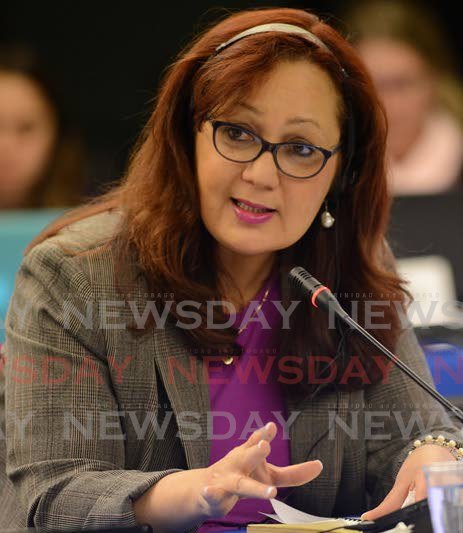Introducing whistleblowing - A timely public good

by Professor Rose-Marie Belle Antoine
Pro Vice-Chancellor Graduate Studies & Research
The advent of whistleblowing legislation before Parliament, the third attempt, is a welcome initiative. Legislation to encourage and protect whistleblowers to counter corruption and wrong-doing in public and public enterprises is a relatively new, but important phenomenon worldwide, recognised, e.g. in the United Nations Convention against Corruption.
Whistleblowing is not only about corruption relating to financial dealings. It can embrace a wide array of activities that threaten the society and its development. Think Erin Brockovich for example. Law is needed because the weight of existing legal norms militates against persons coming forward to report wrongdoing, siding with the employer, leaving the whistleblower vulnerable, although principled. This needs to be rectified if we are serious about protecting our democracies.
Is the proposed legislation perfect? No. such laws are notoriously difficult to conceptualise. Diverse interests and objectives compete. The whistle-blower’s rights to, freedom of expression and fair labour practices clash with rights to reputation and fair treatment of the complainee. Further, there is the general objective of eliminating corruption, strengthening transparency and accountability within the public sector and society.
Such laws require balance - a curtailment of some individual rights to protect other rights in the public interest. In the UK, there are horrendous tales of whistleblowers not protected enough. This is proof that policy must err on the side of heavily weighted protection for whistleblowers, not seeking to preserve interests of those who may be perpetrators of wrongdoing. This requires a conscious policy choice, determining that transparency is priority. We should avoid seeing law in too narrow prisms. Ultimately, law is about the public good. For example, believing that possible corrupters have greater rights to privacy than the public’s right to know is a false positive.
This goes against some entrenched legal principles that counter whistleblowing protections, and will have to be rationalised, including on classified/ privileged information, confidentiality principles in commerce and public sector life, bank secrecy, personal data protection and importantly, implied terms of employment, such as duties of trust and confidence and loyalty. Courts have been reluctant to deviate from these. Thus, a radical re-orientation is needed. Part of the value of this legislation is to build. Our focus should not be on legislation to suit the culture and status quo, but rather, to reshape the culture, just as seatbelt and drink and drive laws created a seismic change in our behavior. This is the essence of law as social engineering.
True, the penalties are draconian for those whose information turns out to be untrue. However, an appropriate balance is struck under clause 19 since it seeks to protect those reporting in good faith (protected disclosures under clause 8) but does not protect those who are merely mischief-makers. The rule of law is not infringed if the first group is granted protection.
For fake-whistleblowers, legal sanctions and the capacity to sue remain.
Notably, the offence here is “knowingly” making a false claim, which is a high threshold to cross. Granted, it might also deter good faith whistleblowers who are not sure whether the info is accurate but are genuinely concerned, given the wrong signal, so the section needs to be understood.
Many of us have been the victims of fake whistleblowing, mischief and untruths, but such dangers cannot be allowed to throttle the capacity of genuine whistleblowing protection. It may be that some whistleblowers turn out not to be genuine, just as are some sexual harassment accusers. Yet, the priority must be to encourage persons to come forward and to overcome the huge disparities of power that now exists within the law in such relationships. Law needs to recognise the vulnerable. If not, it becomes too difficult for anyone to come forward. This is what the Me Too movement has done. It went to the other extreme, to give strong protection, so that the societal benefits of eradicating the scourge compensates for the occasional false accuser. This is the goal of whistleblowing legislation providing the tools to protect and incentivise persons who might otherwise be vulnerable.
Using special tribunals instead of courts as in Canada would certainly give greater access to justice. Recourse to the courts is difficult and costly. Such legislation needs to be separate however. It is not feasible to use the IRA (Industrial Relations Act) e.g. That law is pitched to unionised employees and will leave out a large percentage of workers.
Further, it is limited, intended to treat with industrial relations and not all employment matters, unlike all-embracing labour codes elsewhere. The law rightly encompasses both public and private sectors and could even have extended to public disclosures e.g. to newspapers.
A few years ago, I was part of a group of international experts, many of them initiators of whistleblowing legislation in the UK and elsewhere and also co-host to the Cambridge Symposium on Financial Crime, which highlights whistleblowing. A workshop planned for here fell through when the legislation was aborted. Creating law is just the beginning, since education and awareness-raising must follow if we are to change the culture, reassure the skeptical and fearful and bring about meaningful change.
Laws like these can encourage persons to behave differently about wrongdoing in the society, identify our responsibilities as citizens toward it - not to turn a blind eye, Ultimately, a paradigm shift is needed to inculcate transparency norms necessary for adequate whistleblowing protection, locating the rule of law within broad social goals, not narrow individualistic ones. The time is yesterday therefore, for such a progressive step in our nation’s democracy, if we are serious about real change toward accountability and ultimately development.
Like democracy itself– there are flaws in such legislation; it is a work in progress, but one which must be embraced as the best option.


Comments
"Introducing whistleblowing – A timely public good"